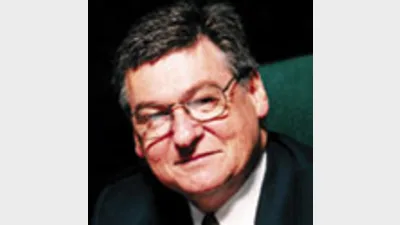Instos try to pass advice buck



Large institutional dealer groups are increasingly putting more oner ous conditions on adviser transfer agreements.
Money Management has been given a copy of a letter sent by one insti tutional dealer group, which we have declined to name, to Melbourne-based Synchron. In the letter, the larger dealer group has requested Synchron take responsibility for advice given by the transferring adviser while in their employment.
A review of all client portfolios would also have to be undertaken by Synchron as part of the transfer.
“The new licensee will ensure that a full review of the investments of all transferring clients is con ducted by the new licens ee as soon as practicable, but in any event no later than six months after the date of termination,” the institutional dealer group letter said.
Synchron director Don Trapnell said the group had refused to agree to these two clauses.
“It would be inappro priate for Synchron to sign an agreement with such offending clauses,” Trapnell said.
“It would be outra geous for Synchron to sign an agreement in which we accept responsi bility for advice given by another licensee.”
Trapnell said his com pany had no knowledge of the compliance regime of the larger group or what products they had recom mended.
“We could pre sumably find our selves taking respon sibility for a Westpoint-type rec ommendation,” he said.
Reviewing all of the transferring adviser’s clients was also impractical, Trapnell said, as the adviser wanting to move had 500 clients.
Money Manage ment has spoken to a number of other smaller dealer groups and they have expe rienced other dracon ian conditions being included in adviser transfer agreements. These include requir ing every client of the transferring adviser to agree in writing to the move and, again, the new group taking responsibility for the adviser’s previous advice, in one case for the past five years.
In another case, an institutional dealer group wanted to charge $250 to $500 a month for transfer ring outstanding commissions to the smaller dealer group. These figures almost matched the adviser’s dealer group fee.
In many cases the dealer transfers have fallen through due to these conditions.
Argyle Partnership partner June Smith said some conditions were acceptable, as long as there were reasonable timeframes.
“It is important the adviser and the deal er group to draw a line in the sand to say who is responsible for what when look ing at a transfer,” she said.
Smith said some conditions on the transfers could be seen as restrictive, such as expecting all clients to sign a letter of approval for the move.
“These clauses have traditionally been included in transfer agreements, but usually it is accepted that if the adviser doesn’t hear from the client, then approval is given by default,” she said.
Financial planning industry consultant Wes McMaster said it is important for advisers to have a termination agree ment in place before leaving.
“When I was run ning ING’s dealer groups I put in place an agreement where advisers could leave easily and take their clients,” he said.
“The day the adviser left the business, we transferred the clients.”
McMaster said many rival dealer groups thought this was a bad idea and did not follow suit.
“If an adviser is unhappy and wants to go, there is no point in stopping them,” McMaster said.
“Having them there is damaging for morale in the dealer group and the advis er becomes less productive.”
Recommended for you
AZ NGA has partnered with an Adelaide-based accounting and financial planning practice as it expands its presence in South Australia.
The central bank has released its decision on the official cash rate following its November monetary policy meeting.
ASIC has cancelled the AFSL of a Melbourne-based managed investment scheme operator over a failure to pay industry levies and meet its statutory audit and financial reporting lodgement obligations.
Melbourne advice firm Hewison Private Wealth has marked four decades of service after making its start in 1985 as a “truly independent advice business” in a largely product-led market.










